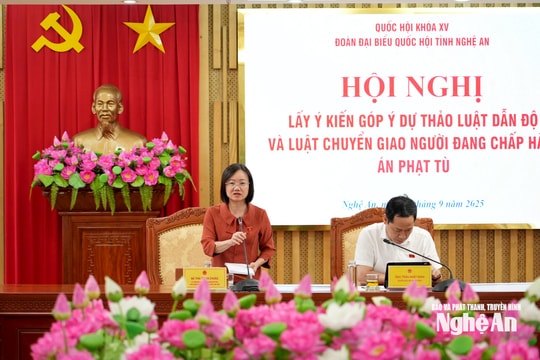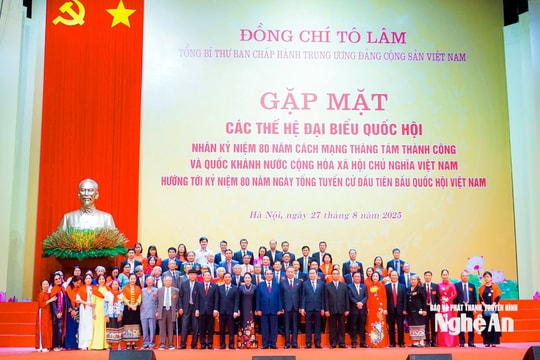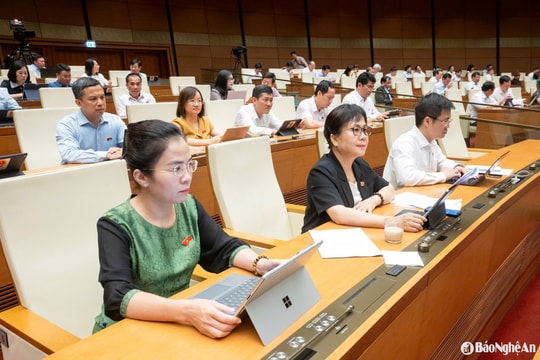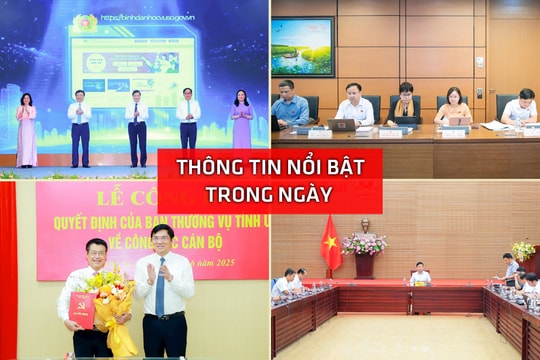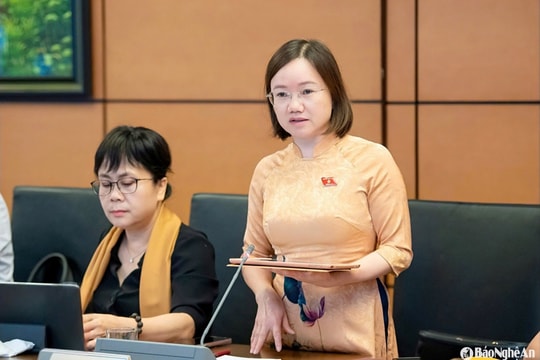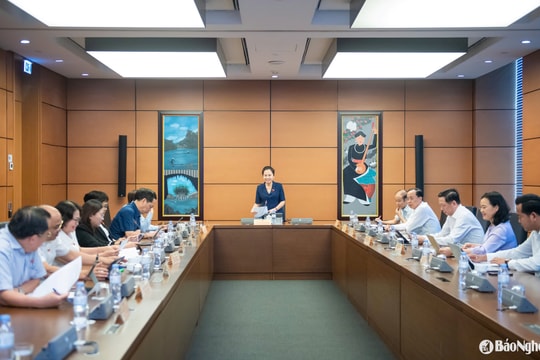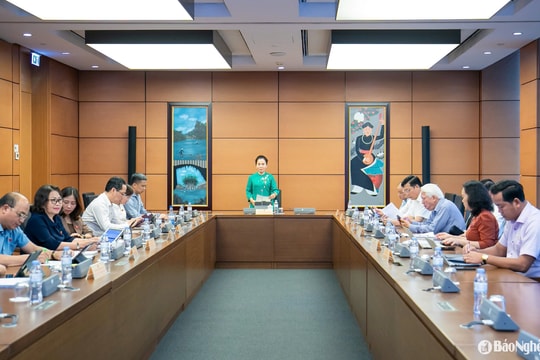Need to unify regulations between foreign trade management, customs clearance and import-export taxes
(Baonghean.vn) - Delegate Nguyen Van Chi - Standing Member of the Finance and Budget Committee of the National Assembly (Nghe An delegation) said that it is necessary to unify the regulations between foreign trade management and customs clearance and import-export tax in the Law on Foreign Trade Management. Because basically, foreign trade management for import-export goods will have to be linked with customs management and import-export tax.
On the morning of May 25, National Assembly deputies discussed in the hall some contents of the draft Law on Foreign Trade Management.
| Delegate Nguyen Van Chi speaks. Photo: Dinh Nam, Office of the National Assembly |
Regarding the designation of import-export border gates (XNK) stipulated in Articles 24 to 26, delegate Nguyen Van Chi - Standing Member of the Finance and Budget Committee of the National Assembly said that, taking into account the opinions of many delegates, the draft has been revised, however, according to this delegate, the draft still does not ensure the necessary specificity, clarity and transparency for businesses and management agencies in implementation.
In this section, according to delegate Van Chi, in addition to the definition, only two major and most general principles are given, and the authority assigned to the Minister of Industry and Trade is to decide and announce the list of goods and corresponding border gates 30 days before it takes effect.
Some argue that the draft's "loose" provisions could be used as a technical measure to tighten and restrict exports and imports of so-called "sensitive" goods at certain times without affecting Vietnam's international commitments. For example, it is currently being applied to used cars, fertilizers, cigarettes, etc.
However, the draft's ambiguity could be used arbitrarily and increase transportation costs, causing difficulties for import and export activities.
Therefore, according to this delegate, it is necessary to have clear regulations on how to identify goods under this management, specific conditions for choosing border gates as well as clear regulations on coordination mechanisms between relevant agencies, so that businesses have full information to develop business plans and also facilitate coordination between management agencies.
Delegate Nguyen Van Chi also said that according to the law on import and export taxes and customs management, when goods are brought from the domestic market into duty-free zones, they are considered export activities and are subject to regulations on customs procedures; this is the time to calculate export tax (if any). And when goods are brought from this area to foreign countries, they will no longer be subject to regulations on taxes and customs clearance procedures.
However, according to the delegate of Nghe An delegation: "Clause 1 and 2, Article 57 is being drafted in the opposite direction, that is, when goods from inland are brought into the Separate Customs Area, foreign trade management measures will not be applied, but when goods are brought from this area to foreign countries, foreign trade management measures will be applied."
Therefore, delegate Nguyen Van Chi suggested that the drafting committee could review this content to be consistent with the regulations on customs clearance and import-export taxes. Because basically, foreign trade management for import-export goods will have to be closely linked to customs management and import-export taxes.
Reporter - Contributor Group
| RELATED NEWS |
|---|

